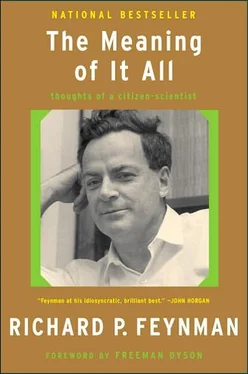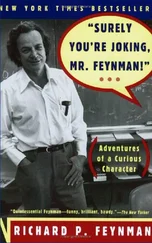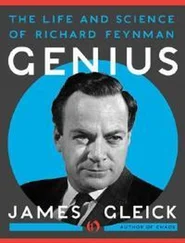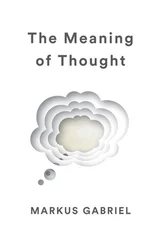Incidentally, people ask me, why go to the moon? Because it’s a great adventure in science. Incidentally, it also develops technology. You have to make all these instruments to go to the moon—rockets, and so on—and it’s very important to develop technology. Also it makes scientists happy, and if scientists are happy maybe they’ll work on something else good for warfare. Another possibility is a direct military use of space. I don’t know how, nobody knows how, but there may turn out to be a use. Anyway, it’s possible that if we keep on developing the military aspects of long-range flying to the moon that we’ll prevent the Russians from making some military use that we can’t figure out yet. Also there are indirect military advantages. That is, if you build bigger rockets, then you can use them more directly by going directly from here to some other part of the earth instead of having to go to the moon. Another good reason is a propaganda reason. We’ve lost some face in front of the world by letting the other guys get ahead in technology. It’s good to be able to try to get that face back. None of these reasons alone is worthwhile and can explain our going to the moon. I believe, however, that if you put them all together, plus all the other reasons which I can’t think of, it’s worth it.
Well, I gotcha.
I would like to talk about one other thing, and that is, how do you get new ideas? This is for amusement for the students here, mostly. How do you get new ideas? That you do by analogy, mostly, and in working with analogy you often make very great errors. It’s a great game to try to look at the past, at an unscientific era, look at something there, and say have we got the same thing now, and where is it? So I would like to amuse myself with this game. First, we take witch doctors. The witch doctor says he knows how to cure. There are spirits inside which are trying to get out. You have to blow them out with an egg, and so on. Put a snakeskin on and take quinine from the bark of a tree. The quinine works. He doesn’t know he’s got the wrong theory of what happens. If I’m in the tribe and I’m sick, I go to the witch doctor. He knows more about it than anyone else. But I keep trying to tell him he doesn’t know what he’s doing and that someday when people investigate the thing freely and get free of all his complicated ideas they’ll learn much better ways of doing it. Who are the witch doctors? Psychoanalysts and psychiatrists, of course. If you look at all of the complicated ideas that they have developed in an infinitesimal amount of time, if you compare to any other of the sciences how long it takes to get one idea after the other, if you consider all the structures and inventions and complicated things, the ids and the egos, the tensions and the forces, and the pushes and the pulls, I tell you they can’t all be there. It’s too much for one brain or a few brains to have cooked up in such a short time. However, I remind you that if you’re in the tribe, there’s nobody else to go to.
And now I can have some more fun, and this is especially for the students of this university. I thought, among other people, of the Arabian scholars of science during the Middle Ages. They did a little bit of science themselves, yes, but they wrote commentaries on the great men that came before them. They wrote commentaries on commentaries. They described what each other wrote about each other. They just kept writing these commentaries. Writing commentaries is some kind of a disease of the intellect. Tradition is very important. And freedom of new ideas, new possibilities, are disregarded on the grounds that the way it was is better than anything I can do. I have no right to change this or to invent anything or to think of anything. Well, those are your English professors. They are steeped in tradition, and they write commentaries. Of course, they also teach us, some of us, English. That’s where the analogy breaks down.
Now if we continue in the analogy here, we see that if they had a more enlightened view of the world there would be a lot of interesting problems. Maybe, how many parts of speech are there? Shall we invent another part of speech? Ooohhhhh!
Well, then how about the vocabulary? Have we got too many words? No, no. We need them to express ideas. Have we got too few words? No. By some accident, of course, through the history of time, we happened to have developed the perfect combination of words.
Now let me get to a lower level still in this question. And that is, all the time you hear the question, “why can’t Johnny read?” And the answer is, because of the spelling. The Phoenicians, 2000, more, 3000, 4000 years ago, somewhere around there, were able to figure out from their language a scheme of describing the sounds with symbols. It was very simple. Each sound had a corresponding symbol, and each symbol, a corresponding sound. So that when you could see what the symbols’ sounds were, you could see what the words were supposed to sound like. It’s a marvelous invention. And in the period of time things have happened, and things have gotten out of whack in the English language. Why can’t we change the spelling? Who should do it if not the professors of English? If the professors of English will complain to me that the students who come to the universities, after all those years of study, still cannot spell “friend,” I say to them that something’s the matter with the way you spell friend.
And also, it can be argued, perhaps, if they wish, that it’s a question of style and beauty in the language, and that to make new words and new parts of speech might destroy that. But they cannot argue that respelling the words would have anything to do with the style. There’s no form of art form or literary form, with the sole exception of crossword puzzles, in which the spelling makes a bit of difference to the style. And even crossword puzzles can be made with a different spelling. And if it’s not the English professors that do it, and if we give them two years and nothing happens—and please don’t invent three ways of doing it, just one way, that everybody is used to—if we wait two or three years and nothing happens, then we’ll ask the philologists and the linguists and so on because they know how to do it. Did you know that they can write any language with an alphabet so that you can read how it sounds in another language when you hear it? That’s really something. So they ought to be able to do it in English alone.
One thing else I would leave to them. This does show, of course, that there are great dangers in arguing from analogy. And these dangers should be pointed out. I don’t have time to do that, and so I leave to your English professors the problem of pointing out the errors of reasoning by analogy.
Now there are a number of things, positive things, in which a scientific type of reasoning works, and in which considerable progress has been made, and I’ve been picking out a number of the negative things. I want you to know I appreciate positive things. (I also appreciate that I’m talking too long, so I will mention them only. But it’s out of proportion. I wanted to spend more time.) There are a number of things in which rational people work very hard using methods which are quite sensible. And nobody’s bothered with them, yet.
For instance, people have arranged traffic systems and arranged the way the traffic will work in other cities. Criminal detection is at a pretty high level of knowing how to get evidence, how to judge evidence, how to control your emotions on the evidence, and so on.
We shouldn’t only think of the technological inventions when we consider the progress of man. There are an enormous number of most important non-technological inventions which mustn’t be disregarded. Economic inventions in checks, for example, and banks, things of this nature. International financial arrangements, and so on, are marvelous inventions. And they are absolutely essential and represent a great advance. Systems of accounting, for example. Business accounting is a scientific process—I mean, is not a scientific, maybe, but a rational process. A system of law has been gradually developed. There is a system of laws and juries and judges. And although there are, of course, many faults and flaws, and we must continue to work on them, I have great admiration for that. And also the development of government organizations which have been going on through the years. There are a large number of problems which have been solved in certain countries in ways that we sometimes can understand and sometimes we cannot. I remind you of one, because it bothers me. And that has to do with the fact that the government really has the problem of the control of the forces. And most of the time there has been trouble because the strongest forces try to get control of the government. It is marvelous, is it not, that someone with no force can control someone with force. And so the difficulties in the Roman empire, with the Praetorian guards, seemed insoluble, because they had more force than the Senate. Yet in our country we have a sort of discipline of the military, so that they never try to control the Senate directly. People laugh at the brass. They tease them all the time. No matter how many things we’ve stuffed down their throats, we civilians have still been able to control the military! I think that the military’s discipline in knowing what its place is in the government of the United States is one of our great heritages and one of the very valuable things, and I don’t think that we should keep pushing on them so hard until they get impatient and break out from their self-imposed discipline. Don’t misunderstand me. The military has a large number of faults, like anything else. And the way they handled Mr. Anderson, I believe his name was, the fellow who was supposed to have murdered somebody and so on, is an example of what would happen if they did take over.
Читать дальше











